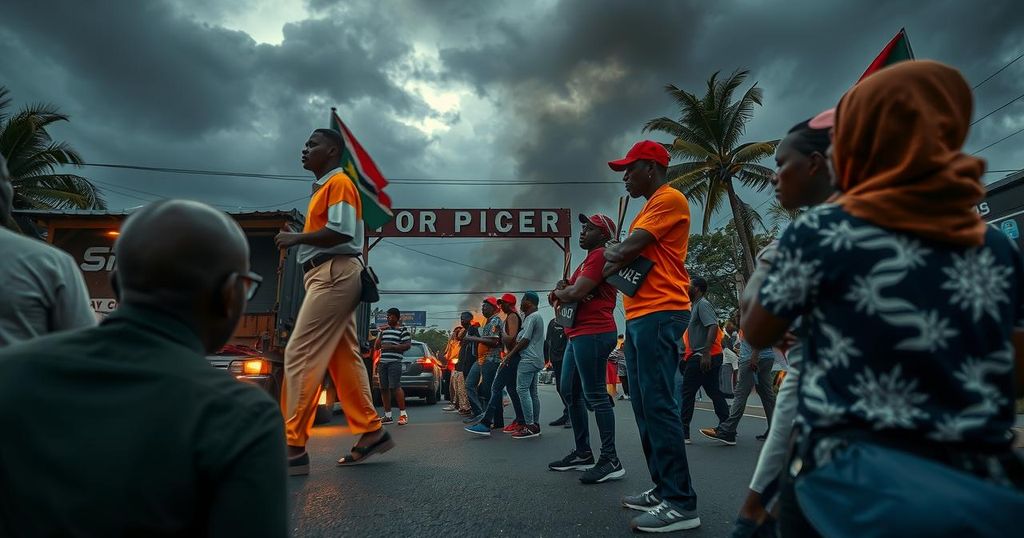Mozambique is witnessing significant protests following the disputed October 9 elections, with opposition leader Venancio Mondlane alleging electoral fraud by the ruling FRELIMO party. Citizens have responded to violent crackdowns with non-violent resistance, while the border with South Africa is closed due to rising tensions. The protests have resulted in numerous deaths and injuries, raising fears of impending conflict and government repression.
Protests in Mozambique continue to escalate following the October 9 elections, which saw the ruling FRELIMO party, led by Daniel Chapo, secure another term in office. Opposition leader Venancio Mondlane of the PODEMOS party contends that the elections were marred by fraud and has urged citizens to demonstrate in response. As tensions mount, the Mozambican security forces have resorted to using tear gas and live ammunition against protesters, resulting in numerous casualties. Internet blackouts have been enforced in attempts to quell the protests, yet citizens have creatively mobilized through non-violent resistance such as banging pots to express dissent. Additionally, the closure of the Lebombo border crossing with South Africa has compounded the unrest, leading to humanitarian efforts for affected drivers.
Mozambique has faced significant civil unrest following the announcement of the election results on October 9, which have been contested by the opposition. The FRELIMO party, in power since the country’s independence in 1975, has been accused of widespread electoral fraud. The protests have resulted in significant violence, including fatalities and injuries among citizens. There is a growing sense among opposition leaders that Mozambique is on the brink of a pivotal historical transition, which adds to the urgency of the demonstrations. Moreover, the government’s response has included attempts to restrict communication, highlighting the repressive nature of the current political climate.
In summary, the protests in Mozambique reflect deep-seated issues surrounding electoral integrity and governance. The violence against demonstrators, alongside the strategic cutting of internet access, indicates an alarming response from the authorities. The call for citizens to unite against perceived injustices suggests a transformative moment in Mozambique’s political landscape, yet raises concerns over potential further escalation of conflict in the region. The international community is urged to pay close attention to these developments and consider humanitarian support for those affected by the unrest.
Original Source: www.fides.org







